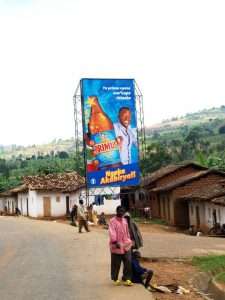An end to aid
Economic development is the answer to poverty. People able to earn a living to support themselves and their families. Taxes that can sustain public services and infrastructure. Institutions that are transparent and democratic through being accountable to an educated and empowered population. The list of things desirable for such an economy might be lengthy, but when one sees such development, it is instantly recognizable. Economic development is a virtuous circle.
Visiting Rwanda five times between 2009 and 2015, the progress was readily observable. Rwanda might still have a democratic deficit, President Paul Kagame might be open to various accusations of authoritarianism, but what is undeniable is that the country has undergone a steady, progressive transformation. Certainly, Rwanda remains desperately poor in objective terms, but Kagame’s commitment to eliminate corruption and promote growth has pushed Rwanda’s ranking by Transparency International to a position comparable with that of some European nations. There is a sense in the country that things have got better and that things will get better.
Rwanda provides a sharp contrast with neighbouring Burundi. Burundi is of a size comparable with Rwanda (both covering an area corresponding with that of the Irish province of Munster), it had a comparable level of poverty, but things in Rwanda’s southern neighbour have grown steadily worse; people have become trapped in a country marked by instability, corruption and extensive levels of absolute deprivation.
The difference between the two countries is economic growth and development; it reduces poverty, it reduces corruption, it facilitates good services and a healthy civil society. Economic improvements make it easier to attract aid and investment into a country, they create the capacity for absorbing major grants, but the difference between the two countries has not arisen from levels of aid, it has risen from what the countries have done for themselves.
Poverty in the world’s poorest countries will be ended by economic development; it will be ended by allowing them free and fair access to international markets, it will be ended by the promotion of transparency and democracy, it will be ended by the creation of robust civil services and civil societies and the elimination of the corruption brought by venal dictators funded by Western multinationals. Poverty will not be ended by aid administered by Western charities.
More than a decade ago, William Easterly wrote of two tragedies in Africa, one was the conditions endured by hundreds of millions of people; the other was that more than $2 trillion had been spent with, in many cases, hardly any improvement in the lot of ordinary people. To continue to expect charities to make a significant difference flies in the face of decades of evidence. How many years have some been in particular locations and, if they have been successful, why are they still there? Whose development is it if the name of a Western agency is still in the air?
The Oxfam scandal should not just prompt questions about the conduct of agencies, it should make people question the existence of the agencies themselves.



Many countries in the 50s 60s and 70s post independence borrowed from the World Bank having been assured this was the way to develop their countries. So you had States building power stations in countries a chap on a bike could light. But the structures were incredibly useful to the giant mining and smelting corps. Ditto with roads and rail.
The question is, are the problems in the West the same as those in Africa. An answer I believe is both yes and no. But only in the difference between what one does with Connemara and the Highlands and Islands -v- the lowlands, Wales and the midlands, or really anyplace north of Oxford. Same as east Belgium North France, the iron belt and coal mining regions in the US.
One thing I’m certain is that the wholesale removal will create hell. Remember the Irish famine and those in India during the 19th century were as a direct result of the removal of a policy combined with nature. Where the natural event, nothing new, exposed the precarious economy.
It’s something you see in the UK and Ireland at the moment where the Social is forcing people to look for employment that won’t cover the expenses of life. Creating in the process a homeless crisis and a system of slavery.